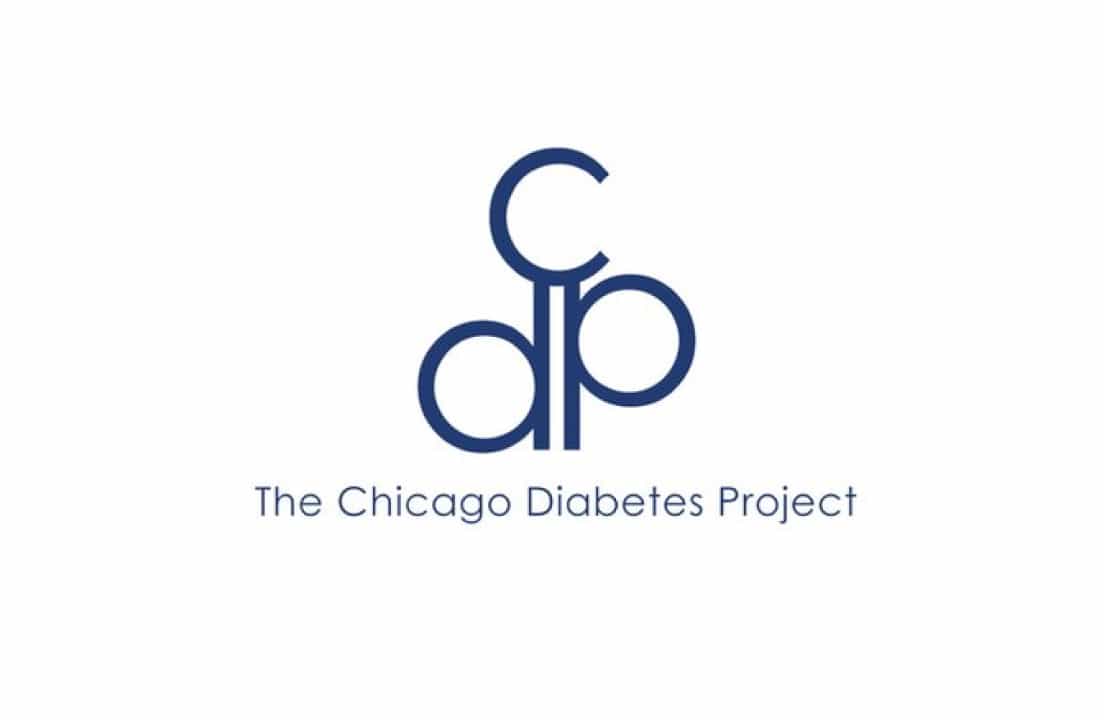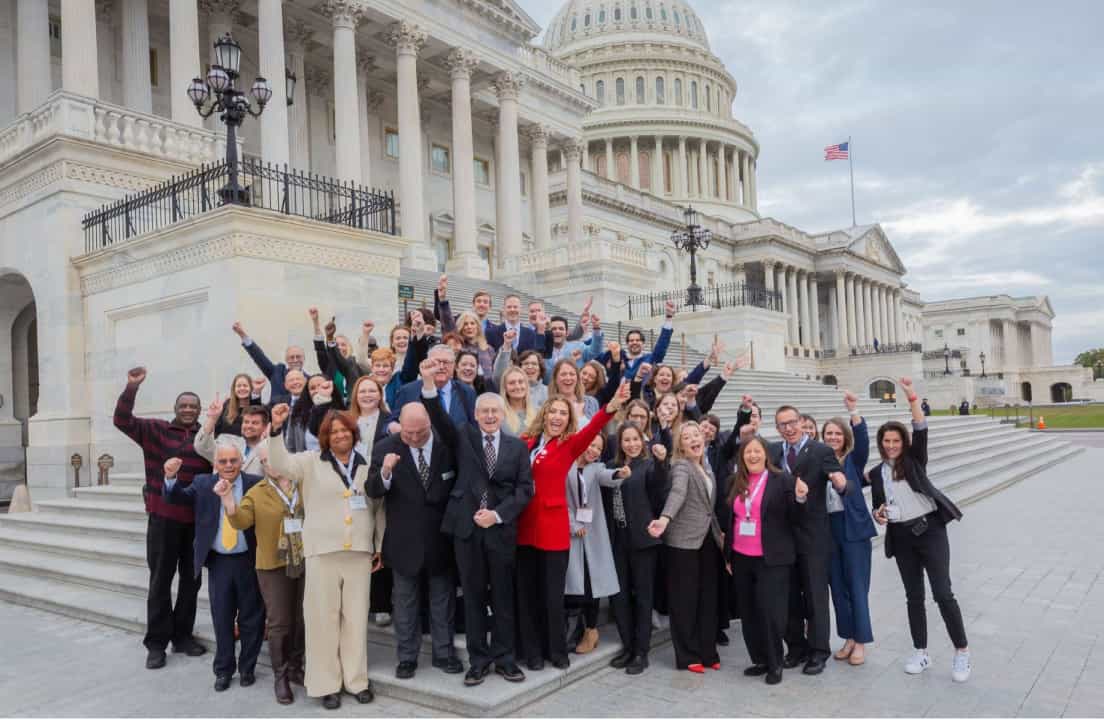T1D Guide
T1D Strong News
Personal Stories
Resources
T1D Misdiagnosis
T1D Early Detection
Research/Clinical Trials
T’ara’s T2D Misdiagnosis Story
At 25 years old, T’ara Smith was misdiagnosed with type 2 diabetes. She had an A1c of 15% and felt increasingly lousy for months before she went to her primary care doctor.
.jpeg)
More adults are being misdiagnosed with type 2 diabetes (T2D) when they have type 1 diabetes (T1D). The Lancet reports that up to 40% of older adults with type 1 might have been misdiagnosed with type 2. This is happening more frequently because type 1 has been seen as a disease that affects children and adolescents. Also, the symptoms for both types are similar, but the treatment plans differ.
In 2017, Smith said she was having leg cramps, her hair was falling out, she was extremely thirsty, and urinating frequently. “I had lost a lot of weight, too, but I didn’t make the connection.”
Looking back at old photos from the time, Smith was surprised at her appearance. “I actually looked gaunt compared to my normal body size,” said Smith.
Her primary care doctor tested her urine, blood glucose level, and HbA1c.
- Blood glucose: 556 mg/dL
- HbA1c: 15.5%
- Ketones: No one discussed ketones during her diagnosis
“He told me I had ‘full-blown diabetes,’” recalled Smith. “It was so matter-of-fact. Like he had said this a million other times. There was no emotion. It was just like, ‘okay, you have diabetes now,’ and yet, for me, it was this life-changing diagnosis.”
The doctor also told Smith that if she had waited any longer to come in, she would have needed to be hospitalized. While this should’ve been a red flag to the doctor, he proceeded with the misdiagnosis.
The Wrong Diagnosis and T2D Stigmas = Less Education and Support
Unfortunately, the misdiagnosis also leads to less thorough healthcare — thanks to the many stigmas that come with type 2 diabetes. Those harmful and dangerous stereotypes and misconceptions of type 2 diabetes mean a doctor might easily assume the patient “did this to themselves” and won’t make an effort to manage their health.
Would Smith’s doctor have been more compassionate had the diagnosis been type 1? Smith isn’t sure. “Maybe,” she considered. “I think he would’ve explained the disease more if he knew it was type 1. He would’ve sent me to an endocrinologist. He would’ve given me more information.”
She left the doctor’s appointment that day with metformin and Lantus long-acting insulin and very little information. “They told me to get my eyes checked, see a nutritionist, improve my diet, and get more exercise.”
Fortunately, Smith was studying nutrition in graduate school. “So, I already knew a lot about nutrition compared to the average person,” said Smith, “but I still had to learn so much more about diabetes nutrition. And that wasn’t easy. Imagine how hard it must be for people who don’t already have an educational background in nutrition?”
Looking back at the total lack of information and real guidance she was given at her diagnosis — continues to be a detail she will never forget.
“People with type 2 deserve so much more support than what they’re currently getting in our healthcare system,” Smith said.
.jpeg)
Trying to Manage Type 1 with a Type 2 Diagnosis
“Taking metformin and Lantus insulin went okay,” said Smith. “I had some stomach issues with metformin at first, but it got better. The Lantus was relatively easy to take because it was only once a day at night. I didn’t feel burdened by it.”
Smith also checked her blood sugar once a day but realized, looking back, that she wasn’t getting the full story. “Yeah, I was waking up in range, but I had no idea what my blood sugar was doing during the day after meals.”
Meanwhile, Smith wouldn’t have been able to do anything about the high blood glucose levels she was experiencing throughout the day because she hadn’t been prescribed rapid-acting insulin. “Looking back, I should’ve been checking my blood sugar more often, but there was no sense of urgency that came with my diagnosis,” said Smith. “I also had to be careful with how many strips I used because I was limited by my health insurance. I couldn’t test multiple times per day regularly, or I would’ve run out too soon.”
Another major flaw in the system, of course, is assuming that people with type 2 diabetes don’t need to check their blood sugar levels multiple times per day.
“Three months after my misdiagnosis, my A1c went from 15 to 10 percent,” remembered Smith. “I thought I was on the right track, but my doctor increased my metformin dose from 500mg to 1000mg twice a day, and she increased my Lantus dose.”
Her physician was expecting a significantly bigger drop in her A1c in that amount of time. However, the doctor never questioned whether the diagnosis was wrong or something else was happening. She just added more medication.
“As patients, we trust the doctor, and we believe what they believe, what they tell us about our health,” said Smith. “Too many doctors are following these outdated beliefs on who gets which type of diabetes at which age.”
Misdiagnosed for Two Years
A year later, Smith was hired to help create and lead BeyondType2, which is owned by BeyondType1. Thom Scher met Smith at the Association of Diabetes Care & Education Specialists' (ADCES) annual conference and was struck by her confidence and leadership skills.
But inside, Smith was struggling. “I was trying to manage my blood sugar with the two meds and diet and exercise, but it wasn’t working,” she remembered. While her blood glucose levels weren’t dangerously high, they were often in the 200s.
Smith felt frustrated and ashamed — trying to do all the right things without the results of her work. A year into her role as Director of BeyondType2, Smith recalled a week when her blood glucose levels spiked to 400 mg/dL and wouldn’t budge. “I felt so dizzy during this meeting,” Smith said. “One of my coworkers, who has type 1, got some ketone strips. It said I had small ketones, so they recommended an endocrinologist.”
Two years after her initial type 2 diabetes misdiagnosis, Smith finally had an appointment with an endocrinologist. When she described her symptoms, the endocrinologist already suspected type 1. She tested her for autoantibodies related to type 1 diabetes, the sign that your immune system is attacking and destroying the cells in your pancreas that produce insulin.
Type 1.5 Diabetes or LADA
In April 2019, Smith was finally diagnosed properly with type 1.5 diabetes — also known as latent autoimmune diabetes in adults (LADA). LADA is type 1 diabetes, but the attack on the pancreatic cells is very slow.
“You’ll always be on insulin,” Smith recalled the doctor telling her. “That was upsetting because I had been trying and wanting to get off insulin because they told me as a type 2, and that I should try to get off of it and manage with diet and exercise.”
It was an emotional time for Smith — feeling so “out of control” of her diabetes. She eventually sought therapy to shake the impact the misdiagnosis had on her mental health. “I’m gonna be taking this medication for the rest of my life,” Smith remembered realizing. “That was really hard to accept after working so hard to get off of insulin.”
.jpeg)
Her Type 1 Diagnosis Changed Her Access to Adequate Care and Tech
“As soon as I was diagnosed with type 1, I was offered a continuous glucose monitor (CGM) and rapid-acting insulin,” said Smith. “Suddenly, I had all these options available to help me manage my blood sugar levels. The same blood sugar levels I had as a type 2.”
The classification on her medical records completely changed what her health insurance company was willing to pay for. While some access to this technology and medications has improved since Smith’s experience as a misdiagnosed type 2, it still has plenty of room for improvement.
CGMs and rapid-acting insulin should be offered to anyone struggling with high blood sugar levels — regardless of their diabetes type.
“It was frustrating to experience this,” said Smith. “It’s just wrong. In type 2, there is no urgency. In type 1, the urgency to help you improve your blood sugar levels and prevent ketones is right there.”
With type 2, Smith said it felt like the healthcare system treated it very casually. “It’s like, ‘Okay, your A1c is high, but you’re not having a heart attack yet, so you’re okay.’ These outdated standards of care and the lack of seriousness for high blood sugars in type 2, it’s putting everyone at risk for complications,” said Smith.
“You’re only going to be as effective as the healthcare system is set up to be,” Smith said. “And those guidelines drive what health insurance companies will cover. This needs to change.”
Speaking Up for Others: Misdiagnosed and Type 2s
At first, after her type 1 diagnosis, Smith questioned whether she should be the Director of BeyondType2. “Am I really the right person for this role now that I’ve been diagnosed with type 1?” questioned Smith. “My boss, Thom, was the first person I told about my new diagnosis.”
He reminded Smith that she’d still been through the type 2 experience. She witnessed firsthand the inadequate care, education, and support she received from the healthcare system simply because it was type 2, not type 1. “He helped me reshape how I could help people through BeyondType2,” Smith said. “He reminded me that my experience is my own. The stigma, the misconceptions, the stereotypes, I wanted to help give people with type 2 a voice and the respect and compassion they deserve.”
Smith wants the conversation about these issues — misdiagnosis and the stigmas that burden type 2 healthcare — to get louder.
“Doctors need to stop making assumptions,” Smith stressed. “They need to rule out all cases before you send someone off on a journey that’s not theirs. There are clinical risk factors, but you can’t stop there and make a diagnosis.”
It’s Okay to Question Your Diagnosis
Meanwhile, Smith knows there are so many people today, likely walking around with a misdiagnosis of type 2, likely frustrated because the treatment plan isn’t working.
“I feel lucky that I was working with people who have type 1 diabetes who knew something wasn’t right,” said Smith. “How much longer would it have taken to get the right diagnosis? And I wonder, for those who’ve been misdiagnosed for several years, what would be different about our life and our relationship with diabetes if we had started on the right insulin regimen and a CGM sooner?”
Today, Smith is 32 years old, loving the California sunshine with her dog, and still working to support people with type 2 diabetes.








.webp)
.jpg)
.jpeg)
.jpg)

.jpg)
.webp)

.jpg)
.jpg)
.jpg)
.jpg)


.jpg)

.jpg)

.jpg)
.jpg)



.jpg)

.jpg)
.jpg)


.jpg)
.jpg)

.jpg)
.jpg)
.jpg)
.jpg)
.jpg)

.jpg)
.jpg)
.jpg)
.jpg)
.jpg)
.jpg)
.jpg)
.jpg)
.jpg)
.jpg)

.jpg)
.jpg)
.jpg)

.jpg)
.jpg)


.jpg)
.jpg)
.jpg)
.jpg)
.jpg)














.jpg)


.jpg)













.webp)





%20(1).png)














.webp)